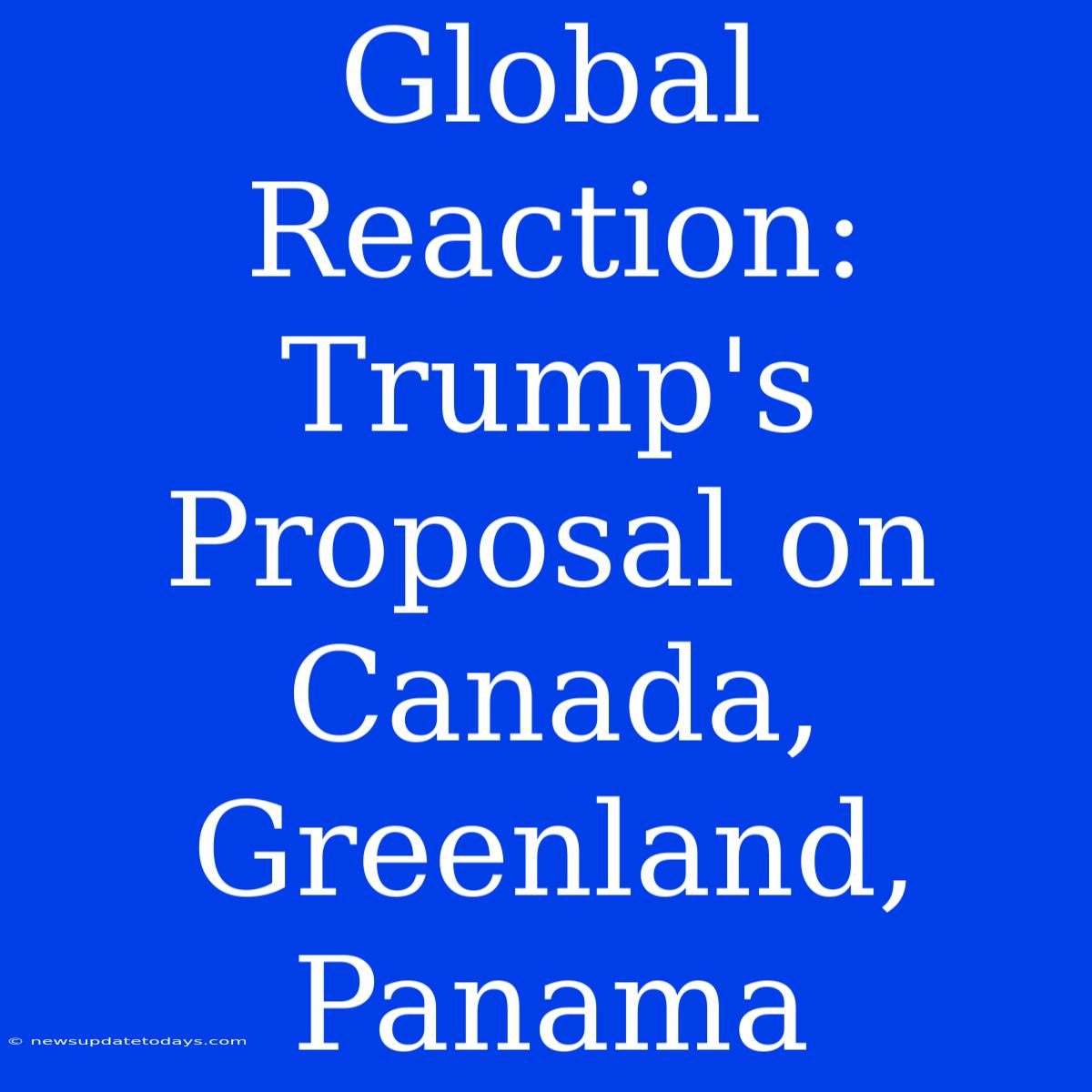Global Reaction: Trump's Bold Proposals on Canada, Greenland, and Panama
Donald Trump's presidency was marked by numerous unconventional policy proposals, and his pronouncements regarding Canada, Greenland, and Panama certainly fit that description. While some ideas were ultimately abandoned or significantly altered, the initial reactions from the global community were swift and often sharply critical. This article delves into the international response to these proposals, exploring the underlying geopolitical contexts and lasting impacts.
Trump's Proposals: A Summary
While details varied, Trump's public statements and reported internal discussions hinted at several controversial actions concerning these three nations:
-
Canada: Trump's frequent criticisms of the North American Free Trade Agreement (NAFTA), coupled with threats of tariffs and trade wars, generated significant anxiety in Canada. His administration's negotiation tactics were seen as aggressive and unfair by many Canadian officials and citizens.
-
Greenland: The most dramatic proposal involved the potential purchase of Greenland, a self-governing territory within the Kingdom of Denmark. This unprecedented move was met with widespread derision and disbelief internationally. Denmark's firm rejection underscored the infeasibility and impropriety of such a proposition.
-
Panama: While less overtly dramatic than the Greenland proposal, Trump's administration's approach to relations with Panama also drew criticism. Concerns revolved around issues relating to trade, security cooperation, and the handling of diplomatic relations.
International Reactions: A Chorus of Concern
The international community reacted to Trump's proposals with a mix of disbelief, anger, and concern. The responses varied depending on the specific nation involved, but common themes emerged:
Canada: Canadian officials expressed concerns about the potential damage to the long-standing Canada-US relationship and the detrimental effects on trade. The renegotiation of NAFTA, though eventually resulting in the USMCA, was a fraught process marked by intense negotiations and considerable tension.
Denmark & Greenland: Denmark's immediate and unequivocal rejection of Trump's proposal to buy Greenland was met with global approval. Many viewed the proposal as a relic of outdated colonial attitudes, undermining Greenland's self-determination. Greenland's own government also firmly rejected the offer. This episode highlighted the importance of respecting national sovereignty.
Panama: Reactions to Trump's approach towards Panama were less dramatic, but still involved concerns over the potential disruptions to trade and diplomatic relationships. Existing partnerships and agreements were at stake, leading to calls for a more measured and respectful approach.
Lasting Impacts & Geopolitical Implications
Trump's proposals, despite their varying degrees of success or failure, had lasting geopolitical implications:
-
Erosion of Trust: Trump's often unpredictable and confrontational style significantly damaged trust among key allies, particularly Canada. Rebuilding those relationships required significant diplomatic effort following his presidency.
-
Strengthened Multilateralism: The global reaction against Trump's more aggressive actions served to strengthen the resolve of many nations to uphold international norms and the importance of multilateral cooperation.
-
Focus on Sovereignty: The Greenland episode highlighted the crucial issue of national sovereignty and the rejection of unilateral actions that disregard the self-determination of other nations.
Conclusion:
Donald Trump's proposals regarding Canada, Greenland, and Panama were highly controversial and generated a significant international backlash. These events underscored the importance of maintaining strong diplomatic ties, respecting national sovereignty, and upholding international norms. The reactions to these proposals offer valuable lessons about the complexities of international relations and the potential consequences of unilateral actions in a globalized world. The lasting impact on these relationships continues to shape international discourse and diplomacy today.

